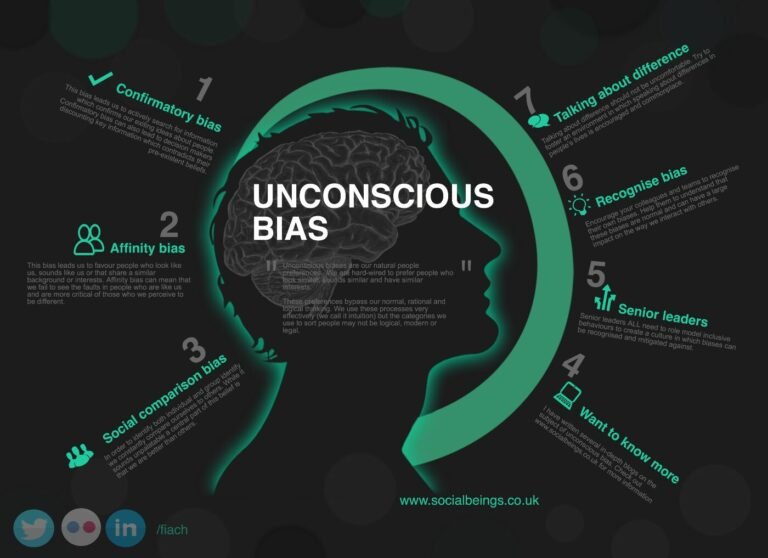The Role of Resident Assistants in Combating Loneliness and Fostering Meaningful Connections Among College Students
The digital age has revolutionized the way we work, learn, and connect with others. As we continue to navigate through these unprecedented times, it’s essential to recognize the benefits of remote work, online learning, and online social groups.
Remote Work: Flexibility and Productivity at Your Fingertips
The rise of remote work has provided employees with the flexibility to balance their work and personal lives more effectively. With the ability to work from anywhere, individuals can create an environment that suits their needs, leading to increased productivity and job satisfaction. Remote work has also expanded job opportunities, allowing individuals to seek positions outside their geographical boundaries and access a broader range of career options.
Online Learning: Expanding Access to Education
Online learning has aided in some ways the democratization of education, making it accessible to people worldwide, regardless of location or socioeconomic background. With a plethora of online courses and degree programs available, individuals can now acquire new skills or pursue higher education at their convenience. Online learning also promotes a self-paced learning environment, allowing students to work at their own speed and absorb information more effectively. This flexibility caters to various learning styles and empowers individuals to take greater control of their educational journey.

Online Social Groups: Creating Virtual Communities and Connections
As technology continues to advance, virtual communities have emerged, providing individuals with the opportunity to connect with like-minded people from around the globe. Online social groups have become invaluable, especially during times of physical distancing. These communities provide emotional support, networking opportunities, and a sense of belonging to individuals who may feel isolated or disconnected in their day-to-day lives. From hobby-based forums to professional networks, online social groups cater to diverse interests, fostering connections that may have been otherwise impossible.
The digital world has brought about significant benefits to our lives, particularly in remote work, online learning, and online social groups. By embracing these opportunities, we can enhance our personal and professional growth, expand our horizons, and forge meaningful connections with others. As we continue to adapt to our ever-evolving world, it’s crucial to recognize the positive impact of these digital advancements and harness their potential for a more connected, flexible, and empowering future.
Finding Balance: The Importance of Physical Connection in a Virtual World
However, it’s essential to recognize that there are limits to the utility of being in the virtual space. Prolonged disconnection from physical proximity with friends and community members can lead to feelings of loneliness and isolation. As we embrace the digital world, it’s crucial to maintain a balance between our virtual and physical lives.
While technology has brought about countless benefits, it cannot entirely replace the warmth and connection found in face-to-face interactions. Building and maintaining strong relationships requires a mix of virtual and in-person connections, ensuring that we continue to nurture our emotional well-being and foster a sense of belonging within our communities.
A New Epidemic
In a recent advisory, Surgeon General Dr. Vivek Murthy highlighted the alarming epidemic of loneliness and isolation sweeping across America. Murthy was interviewed on NPR and it is a good listen. The title of the episode is, “America has a loneliness epidemic. Here are Six steps to address itâ€. With 1 in 2 adults reporting measurable levels of loneliness and young people being the most affected demographic, addressing this issue is of paramount importance due to its severe consequences on both physical and mental health. Resident Assistants (RAs) play a vital role in combating loneliness among their residents and preparing them for life after college.
Loneliness and Isolation: A Growing Concern
Loneliness and isolation have become widespread issues, particularly among young people. Factors contributing to this epidemic include the increasing dependence on technology and social media, the rapid pace of change in modern society, and the erosion of in-person interactions. This is why we hear so many higher education administrators encouraging back-to-campus operations. Yes, remote work is appropriate in some cases but some of the work we do cannot be done well or facilitated virtually. Humans are social creatures by nature, of course, there are always exceptions to the rule but generally, this is true for most. These factors have led to a people..humans…us struggling to maintain meaningful connections with others.

Lack of social connections can lead to serious mental and physical health problems, including depression, anxiety, suicide, cardiovascular disease, dementia, stroke, and premature death. Additionally, loneliness can negatively impact academic performance, job satisfaction, and overall quality of life. Therefore, it is crucial to address the root causes of loneliness and find ways to strengthen social connections.
The Role of Resident Assistants in Combating Loneliness
Resident assistants (RAs) have a unique opportunity to foster connections among their residents, reducing feelings of loneliness and isolation. As student leaders living in the residence halls, RAs have the ability to directly impact the well-being of their fellow students by creating a positive living environment that promotes social connection. Here are six strategies for addressing loneliness and promoting a strong sense of community within your residential halls.
Strategy 1: Organize Inclusive Social Events and Programs
One way RAs can foster connections among their residents is by organizing events and activities that encourage interaction and relationship building. These events can range from floor dinners and game nights and cultural programs. By providing a variety of opportunities for residents to engage with one another, RAs can help create a sense of belonging and community within the residence halls.
Step 2: Connect Students to Campus Resources
RAs can also offer support and advice to their residents, acting as a resource for students who may be struggling with loneliness or other personal issues. By being approachable, empathetic, and knowledgeable about campus resources, RAs can help their residents navigate the challenges of college life.
Strategy 2: Implement a Digital Detox Initiative
Promote a healthy balance between online and offline connections by implementing a digital detox initiative. On May 4, 2023, Associate Director of Residence Life and Education at the University of Central Florida, Tiffany Conde, hosted a detox for our staff after a long academic year. Encourage residents to set aside specific times of the day to disconnect from their devices and engage in face-to-face interactions. Organize device-free activities, such as group meals, hikes, or creative workshops, to reinforce the importance of in-person connections.
Strategy 3: Encourage Active Listening and Open Communication
Host workshops or discussions on active listening and communication skills. Teach your residents the importance of being fully present during conversations and making an effort to understand others’ perspectives. Encourage residents to practice these skills in their daily interactions and provide resources for those interested in learning more.
Strategy 4: Promote Acts of Kindness and Empathy
Foster a culture of kindness and empathy within your residential community. Encourage your residents to engage in random acts of kindness, such as leaving uplifting notes for their neighbors or offering to help with tasks. Share stories of kindness and empathy within your community and recognize those who actively contribute to a supportive environment.
Strategy 5: Create Opportunities for Service and Volunteering
Organize service projects and volunteering opportunities for your residents. Connect with local organizations and identify ways your community can give back. Encourage residents to participate in these activities and emphasize the benefits of service, such as increased social connections and improved mental well-being. There is nothing better to creating community and connection than helping others in need.
Strategy 6: Advocate for Strong Social Infrastructure on Campus
Work with campus administrators and student government representatives to advocate for resources that support social connection and mental health. This might include lobbying for additional funding for residential programs, establishing mental health initiatives, or creating more communal spaces for students to gather and connect. A recent communication from a Student Affairs national association reminds us that our work is both personal and political.
Three Significant Reasons for RAs to Prioritize Relationship Building

Developing a Strong Support Network
A solid support network can help college students manage stress, enhance their emotional well-being, and navigate life’s challenges. By encouraging residents to form connections with one another, RAs can play a vital role in helping students build a network of support that will serve them throughout their college experience and beyond.
Promoting Effective Communication Skills
Strong communication skills are essential for forming and maintaining healthy relationships throughout one’s life. RAs can help students develop these skills by encouraging open communication and active listening during interactions with their residents. By facilitating discussions, mediating conflicts, and modeling effective communication techniques, RAs can help students build the foundation for successful interpersonal relationships. In the past, these were referred to as soft skills but employers are now espousing the value and importance of having employees that can communicate well with others and have high levels of EQ.
It’s important to acknowledge that certain statements or attitudes can be considered ableist, meaning they promote discrimination or prejudice against individuals with disabilities. However, the main focus should not be on excluding individuals with cognitive, emotional, or neurological differences. Instead, we should strive to develop empathy and understanding towards those who may interact differently with others.
Empathy and understanding are key elements of strong communication skills, which are highly valued by employers and essential for building healthy relationships. As RAs, we can encourage our students to engage in open communication and active listening to foster successful interpersonal relationships. It is crucial to understand that there is a distinction between being straightforward and factual, and being impolite and harsh. Unfortunately, far too many leaders mistakenly equate rudeness with strong leadership, setting a poor example for their impressionable student staff. -There is a difference.- By modeling effective communication techniques and mediating conflicts, we can help our students build a foundation for successful interactions with individuals of all backgrounds and abilities.
Fostering a Sense of Belonging and Community
When students feel connected to their peers and their environment, they are more likely to be engaged, academically successful, and have a positive college experience. RAs can contribute to this sense of belonging by creating an inclusive living environment and offering programming that encourages residents to connect with one another. Student success and well-being is a priority on many college and university campuses. Ample research shows the importance of helping students establish a sense of belonging.
Numerous studies have demonstrated that a sense of belonging is crucial for student success and well-being. For example, a study published in the Journal of Science found that students who feel a sense of belonging are more likely to persist in their academic pursuits and have higher levels of academic achievement (Walton & Cohen, 2011). Similarly, a report by the National Center for Education Statistics found that students who reported feeling social belonging were more engaged in their coursework, more likely to attend class, and had higher GPAs than students who did not feel a sense of belonging.
Recommitting to Our Work
Resident assistants play a crucial role in fostering connections and combating loneliness among college students. By prioritizing relationship building and creating a strong sense of community, they prepare their residents for life after college and contribute to their overall well-being. The importance of social connection cannot be underestimated, as it is the medicine hiding in plain sight that can lead to a healthier and happier society.
As we move forward in addressing the loneliness epidemic, it is essential for colleges and universities to recognize the pivotal role RAs play in promoting social connection among students. By providing the necessary support, resources, and training, institutions can empower RAs to make a lasting impact on the lives of their residents.
Reflective Questions:
- How can resident assistants implement strategies to foster meaningful connections among their residents?
- What can colleges and universities do to support resident assistants in their mission to combat loneliness and isolation?
- How can individuals take responsibility for nurturing their own social connections and combating loneliness in their lives?
References
Walton, G. M., & Cohen, G. L. (2011). A brief social-belonging intervention improves academic and health outcomes of minority students. Science, 331(6023), 1447-1451. doi: 10.1126/science.1198364






![The Laws of [Social] Motion: Applying Newton’s Second Law to Systemic Racism and Inequality](https://arianlbryant.com/wp-content/uploads/2023/03/image0.png)
